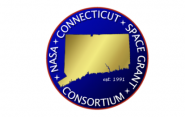Andrew Reardon '21 Wins NASA Connecticut Space Grant

For a proposal that would reduce the amount of time that astronauts spend outside of their spacecraft, Andrew Reardon ‘21 has won a NASA Connecticut Space Grant Consortium (CTSGC) Undergraduate Research Grant.
Spacewalks are one of the most dangerous tasks astronauts face in space. Working with graduate student Dylan Shah in the laboratory of Rebecca Kramer-Bottiglio, the John J. Lee Assistant Professor of Mechanical Engineering & Materials Science, Reardon devised a plan that would allow astronauts to do their work without having to leave their spacecraft. The proposal was one of five Undergraduate Research Grants awarded by the CTSGC. The prize is $5,000.
“I proposed a design to NASA for a robot arm that could mimic natural human motion,” Reardon said. “I hope that this intuitive control experience will eventually help to eliminate spacewalks altogether.
Using stretchable sensors embedded in a shirt sleeve, the operator’s arm would be positioned to teleoperate a robot arm for remote repairs and upgrades of spacecraft. The soft sensors - one of the focuses of Kramer-Bottiglio’s lab - are flexible, washable, and don’t impede movement. By using these biocompatible materials, the user’s body becomes the controller.
“The operators can be entirely inside the spacecraft and still manipulate the robot outside, so they’re fully out of the line of danger,” he said. “You don’t have to worry about space debris puncturing your space suit or running out of oxygen. All the comforts of life are still there, but you’re able to still do work, which is a unique opportunity for the astronauts.”

